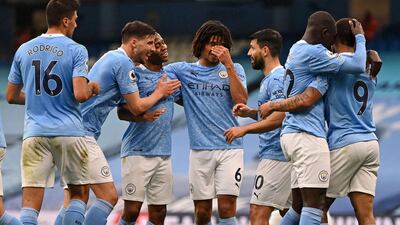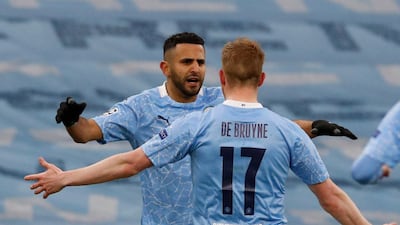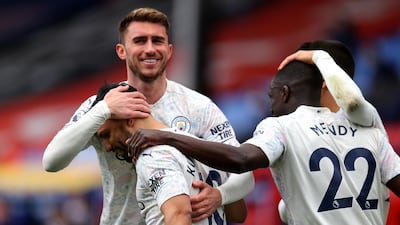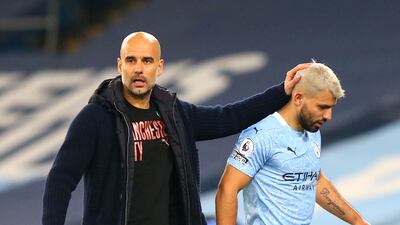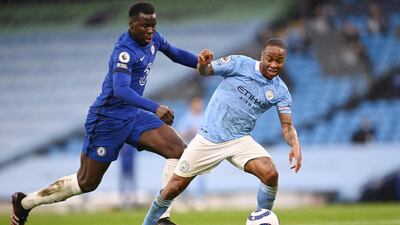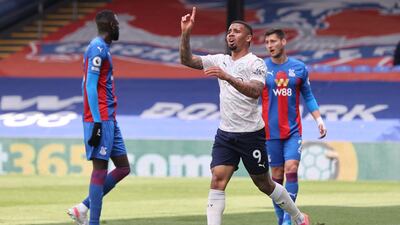“I said 'I don't like the team. I don't like the way we play.’” Pep Guardiola was reflecting on a result that was a catalyst for change. Change at West Bromwich Albion, in fact, because they sacked Slaven Bilic after a 1-1 draw that left Guardiola dissatisfied and Manchester City ninth.
He had made his worst ever start to a season as a manager, conceding five goals in a game for the first time when City were walloped by Leicester City, losing to his old enemy Jose Mourinho in a match that put Tottenham Hotspur top and Guardiola’s charges in the bottom half. He had signed a new contract four weeks before the draw with West Brom; had he condemned himself to mediocrity? Was Guardiola a diminished great reduced to scrapping for the European places during an era of Liverpool domination?
The answer was supplied in emphatic fashion. The draw with Albion was followed by 21 consecutive wins in all competitions, 15 of them in the Premier League. A manager who has always argued that the winter months in England are the toughest saw his team go on an impeccable run in the depths of darkness. In those 21 games, City only even trailed to League Two Cheltenham in the FA Cup. They did not just salvage a season; they transformed it.
In some ways, Guardiola’s third Premier League title has been the most improbable triumph of his career; perhaps his debut season with Barcelona was, but because he was a rookie. Yet this is a feat in adversity. Guardiola’s previous champions have tended to be natural frontrunners. This group were slow out of the blocks. This was a feat of resourcefulness, adaptability, of compromise choices then followed by an ideological ploy that showed Guardiola’s total-footballing principles.
The 5-2 thrashing by Leicester was created in part by City’s lack of a pre-season and shortage of players. Counter-attackers exposed their lack of sharpness; frazzled brains conceded three penalties. But the following week brought perhaps the signing of the season. Ruben Dias may not have been City’s first choice - Sevilla sporting director Monchi said they tabled a “magnificent offer” for Jules Kounde – but he turned into an inspired one, adding authority and reliability. Guardiola nonetheless emphasised caution, often fielding two holding midfielders in autumn. His teams are usually prolific but City only scored five goals in six games after the Leicester humbling.
A switch was flicked after the West Brom draw. Stage one of the rebuild was to defend better, stage two to add more incision. It came courtesy of Guardiola’s tactical input. Joao Cancelo had endured an undistinguished debut year in Manchester; perhaps, but for Covid, he would have been sold. But a misfit turned into a masterstroke, Guardiola getting the full-back to complete a back four when out of possession but join the midfield when they had the ball. That, in turn, released Ilkay Gundogan to go forward. A technician was urged to be ruthless, to shoot more and to get into the box.
And City managed to reap a dividend from the frequent absences of the injury-hit Sergio Aguero. It cleared the penalty area for others; for midfielders and false nines. In particular, for Gundogan. His first league goal came on 15 December; by 13 February, he had 11. His footballing intellect was apparent in the runs he made, his class in the finishes. He scored big goals: one at Chelsea, two at Liverpool, two in the rematch with Tottenham.
The evisceration of Chelsea, with City 3-0 up in 34 minutes, was the first statement performance; they had their old authority back, their movement was bewildering and brilliant. Kevin de Bruyne was sensational as a false nine against his old club. He was injured when City visited Anfield the following month, so Phil Foden assumed the same duties and scored in a 4-1 rout. The champions were being dethroned. Guardiola, the manager who converted Lionel Messi into a false nine, was conquering England without a striker; this was his quintessential tactic, but born of necessity amid injuries. City played with more control in a world where players’ physical conditioning was lesser.
Foden’s flowering was another huge factor; it felt remarkable when Raheem Sterling joined Aguero outside the strongest team. Aymeric Laporte was another benched talisman as they only conceded three goals in the first 15 league games a rejuvenated John Stones started; he and Dias formed a superb partnership. This was a triumph of the men from the margins as a side that surged from mid-table become a team Guardiola could not just like, but love.
